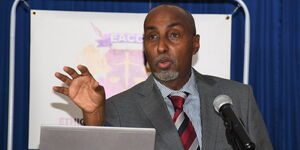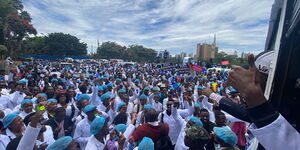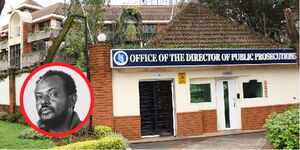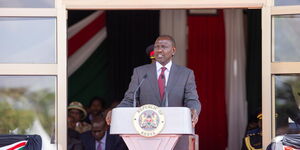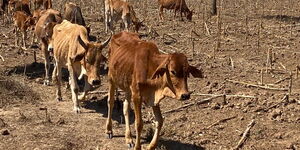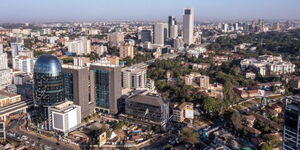The Kenyan government has sounded a subtle warning to the Democratic Republic of Congo (DRC) after the newly signed ceasefire agreement with the M23 rebel group.
After the announcement that a peace deal had been brokered following talks in Qatar, Prime Cabinet Secretary Musalia Mudavadi has weighed in on the latest developments by emphasising that both parties must respect the terms of the agreement after the devastating effects of their conflict.
"The commitment to an immediate cessation of hostilities marks a crucial step toward ending the conflict and offers much-needed relief to the innocent people of the DRC, who have borne the brunt of the mayhem," Mudavadi said in a statement.
Mudavadi further urged the DRC administration and M23 leaders to work towards sustainable peace for the long haul, warning that going back on the agreement could lead to a recession.
He added: "We urge both parties to uphold the ceasefire and work towards a sustainable peace to prevent further loss of life, destruction, and the continued suffering of civilians, especially women and children.
The eastern regions of the DRC have been grappling with instability for years, particularly after the resurgence of the M23 rebel group towards the end of 2021. This conflict has had devastating effects on civilians, as it has led to displacement and insecurity.
Kenya has been at the heart of pushing for regional peace efforts, with President William Ruto issuing a statement in February 2025 calling for all parties in the conflict in the Eastern Democratic Republic of Congo to cease hostilities and embrace dialogue.
Speaking during the opening of the Joint EAC-SADC Summit at State House, Dar es Salaam, Ruto urged the M23 movement to stop further advancement after it emerged that the group had taken over Goma, the largest city in Eastern DRC.
Despite the Kenyan government's seemingly good intentions, intervention in the conflict was not necessarily taken well, with sections feeling like Kenya was meddling, rather than mediating.
These claims were fuelled by the release of a list by President Ruto, containing peace facilitators, including President Uhuru Kenyatta, Nigeria’s Olusegun Obasanjo, and Ethiopia’s Hailemariam Desalegn.
Last Wednesday, one of the biggest breakthroughs was made after the DRC and the Rwanda-supported M23 agreed to suspend the conflict to work on a truce to end the long-standing conflict.
Key in the negotiations was Qatar, with the intervention coming after the Gulf State masterminded a surprise meeting between DRC President Félix Tshisekedi and Rwanda's Paul Kagame.
“Both parties reaffirm their commitment to an immediate cessation of hostilities, a categorical rejection of any hate speech or intimidation, and call on local communities to uphold these commitments,” a joint statement from the two parties read.
“The cessation of hostilities would apply throughout the duration of the talks and until their conclusion."

Autopsy Reveals What Killed Jirongo News Just In

